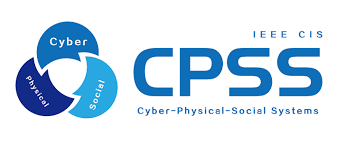The 22nd IEEE International Conference on Ubiquitous Intelligence and Computing (Hybrid)
Calgary, Alberta, Canada
August 18 - 22, 2025
Important Dates
Paper Submission Deadline
April 14, 2025
May 1, 2025
Authors Notification
(extended to) June 10, 2025
Camera-ready Submission
June 30, 2025
Registration
June 30, 2025
Conference Dates
August 18 - 22, 2025
Organizing Committee
General Chairs
Bin Hu
Beijing Institute of Technology, China
H. Herbert Song
University of Maryland, USA
Program Chairs
Parimala Thulasiraman
University of Manitoba, Canada
Ying Zhang
Northwestern Polytechnical University, China
Xiaokang Wang
Hainan University, China,
xkwang@hainanu.edu.cn
Program Vice Chairs
Biyuan Yao
Hainan University, China
Jin Sun
Nanjing University of Science and Technology, China
Xiaolong Xu
Nanjing University of Information Science, China
Publicity Chairs
Ryan Gustafson
Athabasca University, Canada
Yan Ding
Hunan University, China
Chen Yang
Institute of Software, Chinese Academy of Sciences, China
Web Chairs
Raymond Morland
Athabasca University, Canada
Jiawei Wang
The University of Warwick, UK
Steering Committee
Jiannong Cao
The Hong Kong Polytechnic University, HK
Liming Chen
Dalian University of Technology, UK
Sumi Helal
University of Florida, USA
Runhe Huang
Hosei University, Japan
Jadwiga Indulska
University of Queensland, Australia
Hai Jin
Huazhong University of Science and Technology, China
Stephen S. Yau
Arizona State University, USA
Zhiwen Yu
Harbin Engineering University, China
Daqing Zhang
Peking University, China/IP Paris, France
Jianhua Ma (Chair)
Hosei University, Japan
Laurence T. Yang (Chair)
St. Francis Xavier University, Canada
Join us at the 2025 IEEE International Conference on Ubiquitous Intelligence and Computing
Ubiquitous sensors, devices, networks, and information are paving the
way towards a smart world in which computational intelligence is
distributed throughout the physical environment to provide reliable
and relevant services to people. This ubiquitous intelligence will
change the computing landscape because it will enable new breeds of
applications and systems to be developed, and the realm of computing
possibilities will be significantly extended. By enhancing everyday
objects with intelligence, many tasks and processes could be
simplified, more efficient, and more enjoyable. Ubiquitous computing
is to create such intelligent/smart environments, services, and
applications.
We welcome high-quality papers that describe original and unpublished
research advancing the state of the art in ubiquitous intelligence and
computing. Topics for submissions include but are not limited to the
following:
IEEE UIC 2025 Tracks and Topics
Track 1: Intelligent/Smart Object & Interaction
- AutoID technologies such as RFID/iBeacon
- Embedded Chips, Sensors, and Actuators
- MEMS, NEMS, Micro, and Biometric Devices
- Printed Electronics and Pasted Circuits
- Wearable Devices & Embodied Interaction
- Materials, Textiles, Fabrics, Furniture, etc.
- Embedded Software and Agents
- Interaction to Smart Objects and Devices
Track 2: Smart Environment Application
- Intelligent Traffic and Transportation
- Intelligent Energy Consumption
- Intelligent Environmental Protection
- Smart Healthcare and Active Assisted Living
- Smart Education and Learning
- Pervasive Games and Entertainment
- Smart Public Safety and Security
- Virtual Personal Assistants, Cognitive Experts
Track 3: Intelligent/Smart Systems & Services
- Sensor, Ad Hoc, and P2P Networks
- Wearable, Personal, and Body Area Systems
- Smart Systems Programming Models
- Intelligent Services and Architectures
- Cognitive computing in ubiquitous systems
- Human Activity Recognition
- Adaptive, Autonomic & Context-aware Systems
- Autonomous Cars, Assistive Driving
- Big Data in Ubiquitous Systems
- Nature-inspired Intelligent Systems
- Knowledge Representation and Reasoning
Track 4: Personalization and Social Aspects
- Social Computing and Crowd Computing
- Mobile Crowd Sensing and Sourcing
- Affect/Emotion/Personality Computing
- Location-Based Social Networks
- Human Mobility Modeling and Mining
- Human Centered Computing
- Context-aware Computing
- Recommendation Systems for Ubiquitous Computing
- Human-centric Design & Sensing
- Socially Community-aware Systems
- Security, Privacy, Safety, and Ethical Issues
Paper Submission
All papers need to be submitted electronically through the conference submission website (EDAS) in PDF format at EDAS. Each paper is limited to 8 pages (or 10 pages with over-length charge) for a regular full paper, 6 pages (or 8 pages with over-length charge) for a full paper including figures and references using the IEEE Computer Society Proceedings manuscripts style.
Paper Publication
Papers accepted by IEEE UIC 2025 conference will be published by the IEEE Computer Society Press. At least one author of each accepted paper is required to register and present their work at the conference; otherwise, the paper will not be included in the proceedings. All accepted papers will be submitted to IEEE Xplore and EI. Distinguished papers presented at the conference, after further revision, will be invited for submission to a special issue
Final Paper Instructions
Important: Final paper and copyright submissions must be made through IEEE CPS (Conference Publishing Services), NOT EDAS!
Below is the link to the SWC 2025 Author's Final Paper Formatting and Submission Instructions webpage. It is applicable to all co-located conferences (UIC, ATC, DigitalTwin, Metaverse, ScalCom). This will allow you to:
- Verify/convert your paper using PDF eXpress
- Submit your paper's copyright
- Submit your final paper
Panel Discussion: Rethinking Research in the Age of AI
Telus Convention Centre - Macleod Hall B & C
Friday August 22, 2025
9:50am - 10:50am
The revolutionary advancements of AI capabilities, especially in large
scale generative models, advanced learning frameworks, and automated
data mining pipelines, is catalyzing a fundamental transformation in
how knowledge is produced, validated, and shared across disciplines.
AI is now reshaping the way we do research, from speeding up
literature reviews and data cleaning to inspiring new ideas and even
helping draft papers However, this revolution also raises critical
concerns about methodological transparency, reproducibility of AI
assisted results, and recognition of contributions in human-AI
collaborations. These emerging shifts demand a dedicated forum for the
research community to explore both the benefits and the risks of
embedding AI into scholarly workflows.
This panel aims to brings together researchers who have integrated AI
into their daily research practices and responsible for guiding
publication processes and upholding scholarly standards. The
objectives are threefold:
- Map the impact of AI on research affairs by distinguishing between early-stage prototypes and fully deployed systems in tasks such as manuscript drafting, data manipulation, and project resource organization.
- Assess the procedural and potential ethical challenges introduced by AI tools at every stage of the research lifecycle, from conceptual design and data analysis to publication, peer review, and post-publication monitoring.
- Develop institutional recommendations for embedding AI oversight, training, and accountability into research processes, ensuring that policies on authorship, integrity, and compliance respond to the realities of AI-enhanced practices.
Through case-study presentations, interactive tool demonstrations, and
guided discussions, panelists will illuminate both real world
successes and cautionary lessons, and further reflect on questions of
trust, accountability, and academic credit.
By the end of this panel, attendees will have contributed to a
blueprint for AI's role in scholarship—recognizing both its
transformative power and the responsibilities it entails. They are
expected to leave with practical insights on how to harness AI's speed
without undermining scholarly rigor, learn concrete methods to manage
AI risks, and a clearer understanding of promoting responsible
AI-driven innovation in their work. By laying this foundation, this
panel seeks not only to set a direction for today's AI-empowered
research but also to spark an ongoing conversation that will shape the
future of academic work.
Panel Chairs

Prof. Xiaokang Wang
School of Computer Science and Artificial Intelligence, Zhengzhou University, Zhengzhou, China

Prof. Jin Sun
School of Computer Science and Engineering, Nanjing University of Science and Technology, Nanjing, China
Panelists

Prof. Ljiljana Trajkovic
Editor-in-Chief of IEEE Transactions on Human Machine Systems
(THMS)
School of Engineering Science, Simon Fraser University, Burnaby,
Canada

Prof. Bin Hu
Editor-in-Chief of IEEE Transactions on Computational Social
Systems (TCSS)
School of Computer Science and Technology, Beijing Institute of
Technology, Bejing, China

Prof. Man Lin
Computer Science Department, St. Francis Xavier University, Antigonish, Canada

Prof. Zheng Yan
Editor-in-Chief of Elsevier Information
Sciences School of
Cyber Engineering, Xidian University, Xian, China

Prof. Houbing Herbert Song
Editor-in-Chief of IEEE Transactions on Industrial Informatics
(TII)
Department of Information Systems, University of Maryland,
Baltimore County, USA

Prof. Carson Leung
Faculty of Science, University of Manitoba, Winnipeg, Canada

Prof. Xiaokang Zhou
Faculty of Business Data Science, Kansai University, Osaka, Japan
IEEE SWC 2025 Colocated Conferences
IEEE ScalCom 2025
The 25th IEEE International Conference on Scalable Computing and Communications
ViewSponsors





